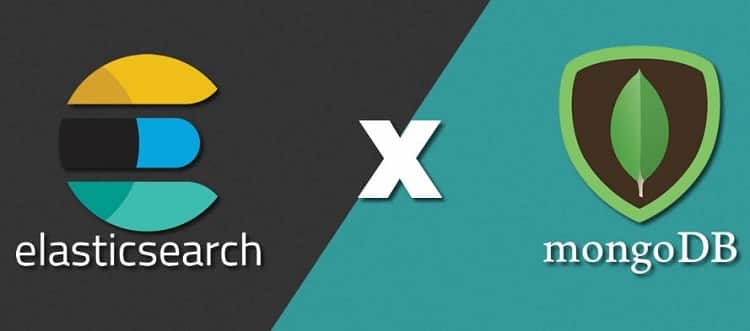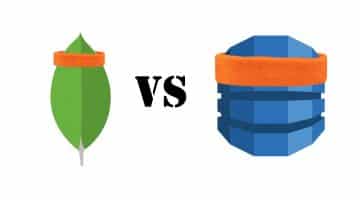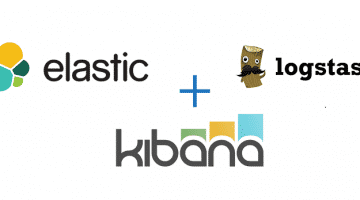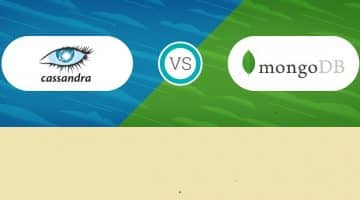The database is one of the most important parts of any system, and in the long run, as the business grows, the importance of the database increases significantly. Not just for storing huge data every day, the analytics that can be generated from these data can give a business an edge over the competitors. In fact, there is a whole industry available for analytics and its analysis for informed business decisions. It is difficult to change the database system once you start with one. Therefore, you should start with the best one from the very again. In today’s scenario, MongoDB and Elasticsearch are the most popular.
MongoDB is already quite popular, and a lot of popular companies are using it and endorsing it. On the other hand, Elasticsearch is an emerging player in the database. MongoDB is extremely user-friendly, and all the different background applications of a database can be performed in simple steps. Elasticsearch is not just a database but a search engine. But it is versatile and has a document store database model just like MongoDB. Before you can choose any of them, you need to know the main differences between these two database choices.
Differences Between MongoDB and Elasticsearch –
There are more similarities than differences between MongoDB and Elasticsearch.
Programming Language Support – MongoDB is more popular because it has support for more languages starting from C, C++, C#, Perl, PHP, MatLab to Ruby Scala, Python, Go, Java, JavaScript. Therefore, all the popular languages are supported, and therefore, the reach of the database has increased rapidly. On the other hand, Elasticsearch supports only Java, JavaScript, Perl, PHP, Python, Ruby and most importantly .Net. DotNet is not yet supported by MongoDB.
3rd Party Support – Even though MongoDB and Elasticsearch started almost together, MongoDB due to its simplicity has grown by leaps and bounds. That is why there are so many different 3rd party supports available. Dremio and Elastic Cloud are the two 3rd party service support that Elasticsearch has. Dremio analyzes the data with BI and SQL tools. It is going to speed by query running multiple times.
On the other hand, Studio 3T, DBHawk, ScaleGrid, CData, Dremio, Knowi are just some of the names that have support for MongoDB. CData connect NoSql with Big Data, ScaleGrid is for backing up MongoDB as well as monitor operations and deploying and scaling things up. DBHawk is one of the reasons for the popularity of MongoDB as it presents a web-based GUI. Studio 3T is the most commonly used IDE with MongoDB.
Applications – Elasticsearch is more easily scalable with MongoDB. It is completely open source, and it is a search cum analytics engine. The data storing, search and analyze are easy and quick. It stays as an underlying technology especially when your searching is going to be complex. The main edges it has over its competitor are open-source, real-time index, easy search and analysis option, faster scalability, and distributed system. The typical applications are searching, logging, security, metrics, and analytics. Among the key customers, NASA, Cisco, Goldman Sachs, Microsoft, Wikipedia are a few that must be mentioned. It has a partnership with Fortune 500 companies, and it has over 250 million downloads.
On the other hand, MongoDB is what you can call the next-generation database. From startups to the largest companies, MongoDB has become a leader. It follows document data model as well as distributed system design and along with MongoDB Atlas and MongoDB Stitch makes it extremely powerful. It is designed for modern applications, and it supports serverless platform.
MongoDB has strong consistency, better query language, and faster developmental support than NoSQL which is its biggest competitor. It is highly flexible and scalable. In fact, it is best for the Internet of Things, Mobile applications, real-time analytics, and much more. The key customers are Adobe, CERN, Bosch, SAP, HSBC, eBay, Verizon and much more.
People are looking for alternative solutions to MySQL as there are certain constraints associated with them. Both these databases are offering good solutions to the problems, and that is why there is a large scale migration to these especially MongoDB. Due to the user-friendly design, MongoDB is fast becoming a favorite among developers and all those developers who want more than just a database, ElasticSearch is the better option.




